When I joined Storylane over the summer, I spent my first couple of weeks diving deep into how our product compares to the competition — and the biggest one by far? Go Consensus. Look up demo automation on G2 and you’ll find that Consensus have cemented their position as leaders in this space (...hopefully, not for much longer).

Credit where credit’s due. Consensus has been trailblazing this demo automation game longer than most alternatives (including Storylane) have even been around. But as the landscape continues to evolve, it’s worth breaking down the details including product differentiations and comparisons between Consensus alternatives. I’ve done the research so you won’t have to.
What Consensus does really well
- Video demos: Their branching video demos allow prospects to choose their own journey through product demonstrations
- Interactive elements: Strong integration of hotspots, tooltips, and guided navigation
- Analytics and tracking: Strong engagement metrics and viewer behavior analysis
Where Consensus falls short
- Limited demo types: Primarily focused on video demos, with recent expansion into screenshot demos through Reachsuite acquisition (no HTML demos or product overlay yet)
- Pricing structure: Higher entry point compared to alternatives, with enterprise pricing that may be prohibitive for smaller teams
- Content management: Updating and maintaining demos can be time-consuming due to the video-first approach
Consensus Alternatives
Before we jump in, note that I’m not mentioning common features here. Specifically; the ability to create chaptered demos, browser extensions, CRM integrations, sharing options (embed, link, etc.), and demo libraries. These are capabilities found in virtually every demo automation software out there so I’ll highlight particular use-cases and differentiators that help each of the following 7 Consensus alternatives stand out.

1. Storylane - For overall best pick
I know, I know — I'm sorry about the shameless plug. But I sincerely find Storylane to be the most well-rounded alternative to Consensus out there.
Best suited for: Easy-to-build demo capabilities across marketing, presales, and sales use cases
Key differentiators
- Wider demo types: Supports video, screenshot, and HTML demos
- Modular content management : Easier to update and maintain demos
- User-friendly: Shorter learning curve, easier setup and scaling
- Smart tokens: To personalize names, logos, currencies, dates, etc at scale
- AI enabled: AI video and voiceovers, AI demo optimizer, AI agent, and more
Consensus vs Storylane
After testing both products (and troubling my sales team for customer feedback), I noticed that Consensus and Storylane tick many of the same boxes — video demos, product tours, demo analytics, integrations, etc. That being said, a closer inspection reveals meaningful differences with regards to area of expertise, usability, scalability, and pricing.
Video demos vs Interactive demos
Consensus built their reputation on video demos — and I’ll be honest, they do it exceptionally well. Their product lets you create branching, pick and choose video demo experiences that adapt based on what the user cares about most. Really neat stuff! They've recently expanded into interactive demos (only screenshot demos for now) through their acquisition of Reachsuite, but at their core, they remain video-first.
.gif)
Storylane, on the other hand, was born in the age of product-led growth. Our bread and butter is interactive demos that give prospects hands-on product experiences. Videos and voiceovers are part of our toolkit, sure, but our heart lies in letting prospects experience the product for themselves — either as guided demos, sandbox demo environments, or Demo Hubs.
In addition to video and screenshot demos, Storylane supports HTML demos. In short, this is a pixel perfect replica of your product’s frontend, allowing for immersive, clickable demo environments that showcase the look and feel of the real product.
Usability
Consensus and Storylane are both relatively user-friendly, but the latter edges out in terms of:
- Ease of use
- Easy of setup
- Ease of admin

Fine lines? Sure — but these differentiators are important when you account for the fact that Consensus is significantly more expensive than Storylane. The former reportedly starts at around $12,000 with some customers citing as much as $100,000 for larger plans. Storylane, on the other hand, starts for free, with premium plans beginning at around $14,000.
Scalability
Building demos quickly is an important aspect of any demo automation tool — especially for presales and sales engineering teams that are tasked with large scale demo operations. Here’s what one of our AEs had to say about differences in scalability between the two tools:
In short, creating, updating and maintaining demos is 10X easier with Storylane because of the modular structure of the assets vs. Consenus’s video approach which makes it slightly more difficult to do this with them.
Most importantly, Storylane is positioned horizontally. Meaning we work with customers across marketing, presales, sales, customer success, and product teams. Again, this makes scalability a breeze for the entire GTM engine.
Pricing: Storylane supports a free plan. Paid plans are are follows:
- Starter - $40/month (video demos, screenshot demos)
- Growth - $500/month (video demos, screenshot demos, HTML demos)
- Premium - $1,200/month (video demos, screenshot demos, HTML demos, and Demo Hubs)
Book a Demo and Build Killer Demos in 2 Minutes!
2. Arcade - For tight budgets
Arcade is a Loom-style interactive demo platform that captures video and screen recordings. What makes it stand out from Loom is its ability to add hotspots and tooltips within the video.
Best suited for: Cost-effective demos for smaller marketing teams
Key features
- Video focus: Screen recordings with interactive elements
- AI voice generation: Synthetic voiceover capabilities
- Simple interface: Low learning curve for basic demo creation
- Affordable pricing: Plans starting around $500/year

Arcade supports a free plan and its growth plan hovers around $500 per year. This makes it a great introduction to demo automation for smaller businesses looking to dip their toes into this space. However, a major drawback with Arcade is that it only supports video-based demos, meaning there’s limited room for interactive guided tours or sandbox demo environments for prospects to test out.
Pricing: Arcade supports a free plan, with paid plans running between $32-42 per month.
Read more: Best Arcade Alternatives You Must Consider
3. Tourial - For video demo libraries
Tutorial is probably the closest to Consensus in that they’re both video-first demo automation platforms that support pick and choose demo experiences. Like Consensus, Torial supports drag-and-drop demo building, hotspots, engagement analytics, and integrations. However, a big drawback with Tourial is its lack of support for camera recording and real voiceovers.
Key features
- Video-first approach: Specialized in creating engaging video demo experiences
- Demo centers: Strong capabilities for organizing and presenting demo content
- Pick-and-choose experience: Similar to Consensus in terms of demo selection
While Tourial captures clicks, scrolls and other product interaction, It falls short in terms of advanced capabilities that Storylane, Navattic, and other code-free demo builders offer at similar price points. Accordingly, I’d recommend Tourial only for those looking to specifically build screen recording based demos and demo centers.
Also Read: Top Tourial Alternatives That You Must Consider
4. Test Box - For enterprise live demos
Test Box is a great tool if you’re looking for live demo environments (otherwise known as product overlays). Unlike other tools on this list, Test Box taps directly into the actual product to create authentic demo and POC experiences.
Best for: Presales and sales teams looking for live demo environments (product overlays)
Key Features
- True product experience: Direct integration with live product instances
- Synthetic data: AI generated data for the live product
What I will say is, although Test Box supports the most true-to-life, high-fidelity product demos on this list, for most use-cases, this is probably overkill. Here are a few reasons why:
- Annual plans start at a relatively steep $44,750
- Onboarding and setup is time-consuming
- Relatively high technical expertise needed
- Inability to build self-guided product tours
- Inability to embed demos on your website (or share as links) - This is a big one!
If product overlays are your thing, I’d gladly recommend Test Box, especially to enterprise sales teams looking to run live demos on sandbox demo environments. For the remaining majority of use-cases, I’d still go with one of the other tools on this list.
Pricing: Testbox pricing starts at $44,750 for 15 users. Their growth plan (more integration, larger data sets, more complex workflows, etc) will run you an additional $15,000.
5. Navattic - For marketing-specific use-cases
Navattic has carved out a strong niche in the demo automation space, particularly among product marketing teams. However, rather than supporting the full range of video and screenshot capabilities that other tools on this list offer, Navattic is limited to HTML demos.
Key features
- HTML demos
- Conditional demos: guided product tours with branching logic

Where Navattic really shines is in its simplicity and focus. The platform prioritizes creating clean, professional-looking demos that can be easily embedded into marketing materials and websites. However, the lack of video demo capabilities and screenshot-based demos may be limiting for teams looking for more comprehensive solutions.
Pricing: Navattic has recently inaugurated a free plan as part of their transition to a PLG product. The premium plans hover around $12,000 a year.
Read more: Top Navattic Alternatives For Every Demo Need
6. Walnut - For crossfunctional teams
Although Walnut positions itself as a “sales experience platform”, it supports a wide range of use-cases across marketing and presales too. However, like Navattic, Walnut only supports HTML-demos.

Walnut's strength lies in its ability to create highly personalized demo experiences that marketing and sales teams can customize for specific prospects and use-cases. However, the learning curve can be steeper compared to alternatives, and the focus on HTML demos means teams wanting video or screenshot-based solutions will need to look elsewhere.
Pricing: Walnut does not support a free plan. Their Lite plan is $9,200 per year with their premium plan hovering around $20,000 a year. This is relatively more expensive than Walnut’s direct alternatives (Storylane, Navattic, etc).
Read more: Top Walnut.io Alternatives for Your Demo Needs
7. Loom - For quick, non-interactive video demos
We’ve brought up Loom a couple of times already so let’s get it out of the way. While not strictly a demo automation platform, Loom has become a go-to tool for teams needing quick, hassle-free video demos.
Now, the limitations with Loom are obvious:
- Passive medium, no interactivity
- Limited scalability
- Basic analytics compared to dedicated demo platforms
- No guided tour capabilities
- Manual creation required for each demo variation
That being said, I continue to use Loom particularly for quick, informal product walkthroughs. It’s hard to go wrong with this one.
Key features
- Easy to create, no learning curve
- One-click video recording
- Screen and camera recording
- Instant sharing via link
Pricing: Given its simplistic nature, Loom’s premium plan will run you only a couple of hundred dollars a year per user. They also support a pretty generous free plan, so that’s a great place to start.
How to decide your next demo automation platform?
There’s a wideee range of Consensus alternatives out there. When selecting yours, consider these key factors:
- Use case priority: Determine whether you need video demos, interactive tours, or live environments
- Team capabilities: Assess your team's technical expertise and capacity for demo creation
- Budget constraints: Consider both initial and scaling costs as your demo program grows
- Integration requirements: Ensure compatibility with your existing tech stack
- Scalability needs: Evaluate how easily you can create, update, and maintain demos at scale
Frequently asked questions - Consensus alternatives.
Q. What are the best Consensus alternatives?
Storylane, Navattic, and Walnut are the top Consensus alternatives. Storylane offers HTML, video, and screenshot demos with AI creation tools. Navattic focuses on HTML demos for marketing teams. Walnut specializes in HTML-first demos for sales workflows. Storylane is the most versatile option with cross-functional support.
Q. What's the difference between video demos and interactive HTML demos?
Video demos are pre-recorded product walkthroughs. Whereas interactive HTML demos are clones of a product's interface, letting users click through screens as if using the real software. Video demos are passive in nature as it doesn’t require engagement from the prospect. Storylane equips users with both interactive HTML demos and video demos.
Q. Which Consensus alternative is easiest to use for non-technical teams?
Storylane is the easiest Consensus alternative for non-technical teams with the highest satisfaction score in the demo automation category and a 9.5/10 ease-of-use rating on G2. The intuitive no-code builder addresses the steep learning curve that Consensus users report. Marketing, sales, and CS teams can create demos independently without sales engineering support.
Q. What are the top Consensus alternatives for sales demos?
Storylane and Walnut are the top 2 contenders. Both serve sales teams. Storylane supports HTML, video, and screenshot formats with personalization features. Walnut, however, is HTML-first and is geared more towards sales workflows. Both integrate with major CRMs and offer demo analytics.
Q. Can interactive demos replace live sales demos entirely?
Interactive demos handle qualification and feature education. Live demos remain necessary for discovery calls, relationship building, and answering technical questions. Storylane supports demo capabilities for both.
Q. How does Storylane compare to Consensus for presales?
Storylane enables faster demo creation across GTM teams without sales engineering dependency. Consensus specializes in branching video demos with comprehensive analytics but needs dedicated SE support. Storylane starts as low as $40/month. For presales usecases, Growth plan is $500/month; while Consensus’ starter plan is $600/month with mandatory annual contracts.
Q. What's the best Consensus alternative for scaling demos?
Storylane scales best through its unified platform, where marketing, sales, and customer success teams build demos independently. The AI-powered workflow removes technical bottlenecks that Consensus creates with its video-first approach. Consensus requires specialized resources and longer production times, limiting scalability across departments.
Q. What are the main limitations of video-only demo platforms?
Video-only demos require complete re-recording when products/UI change. Viewers cannot skip sections, creating friction when the content isn't relevant to their role. Updates break existing links, requiring republishing across all distribution channels. Storylane's HTML and screenshot demos avoid these limitations, using videos strategically to enhance interactivity rather than relying solely on passive video walkthroughs.
Ending Note
The demo automation landscape continues to evolve, with each platform offering unique strengths. While Consensus remains a strong player, alternatives (*ahem* like Storylane) offer compelling value propositions, especially for teams seeking more versatile demo capabilities at a lower price point. For specific use cases, specialized tools like Test Box (live demos) or Arcade (budget video demos) are great options. Hope this helps!
Done researching Consensus alternative? Start a free trial with Storylane and see why it's ranked #1 demo automation software.

.svg)
.svg)







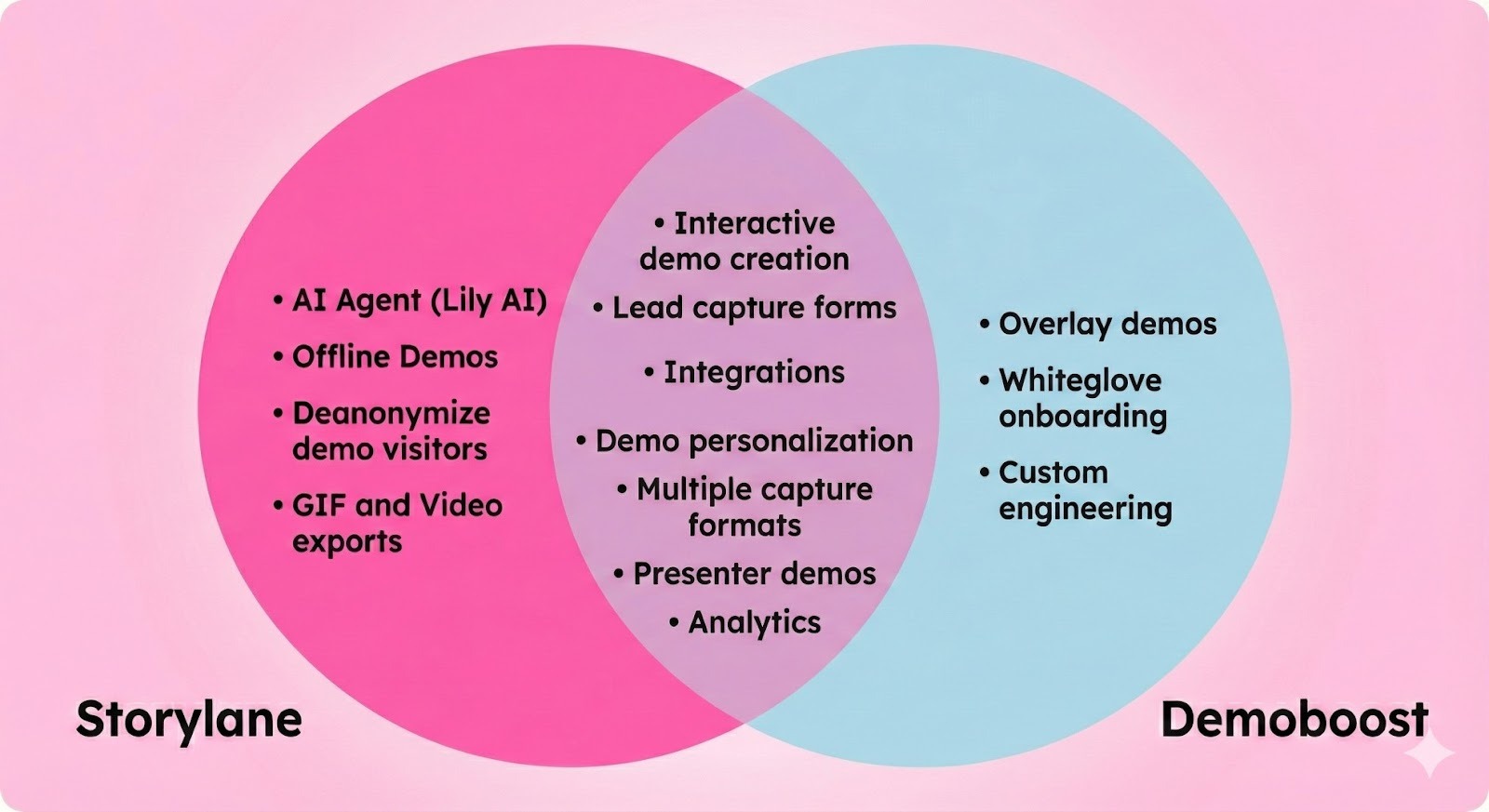

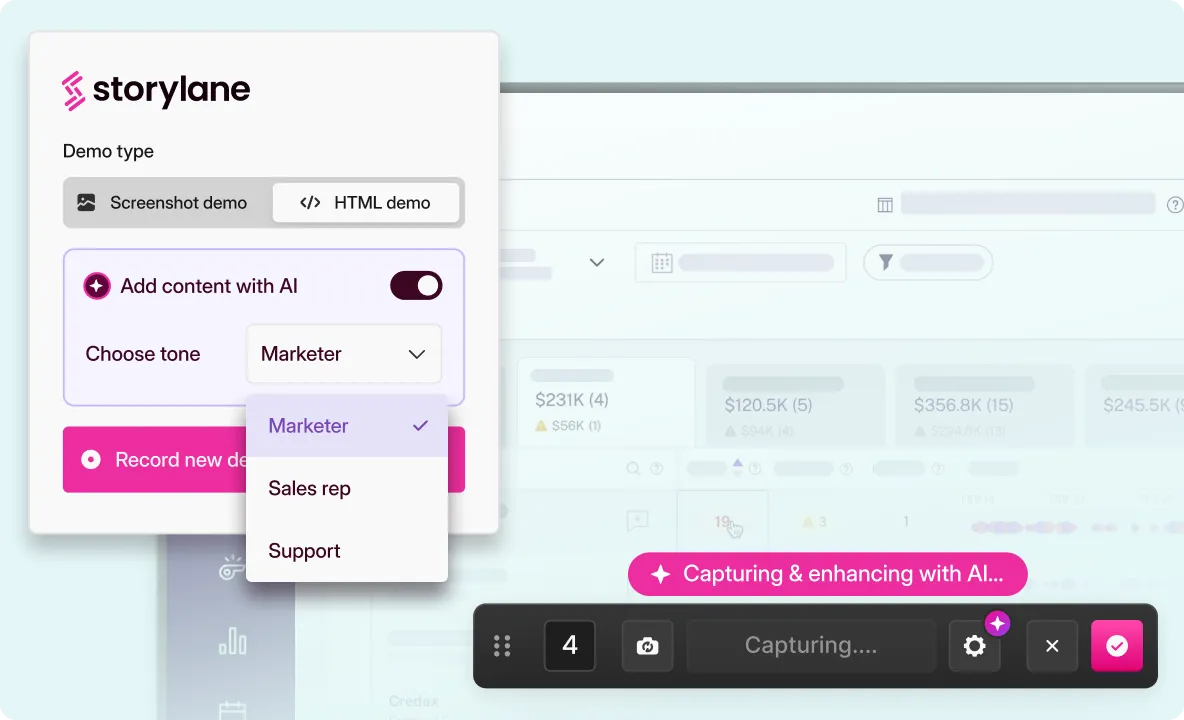
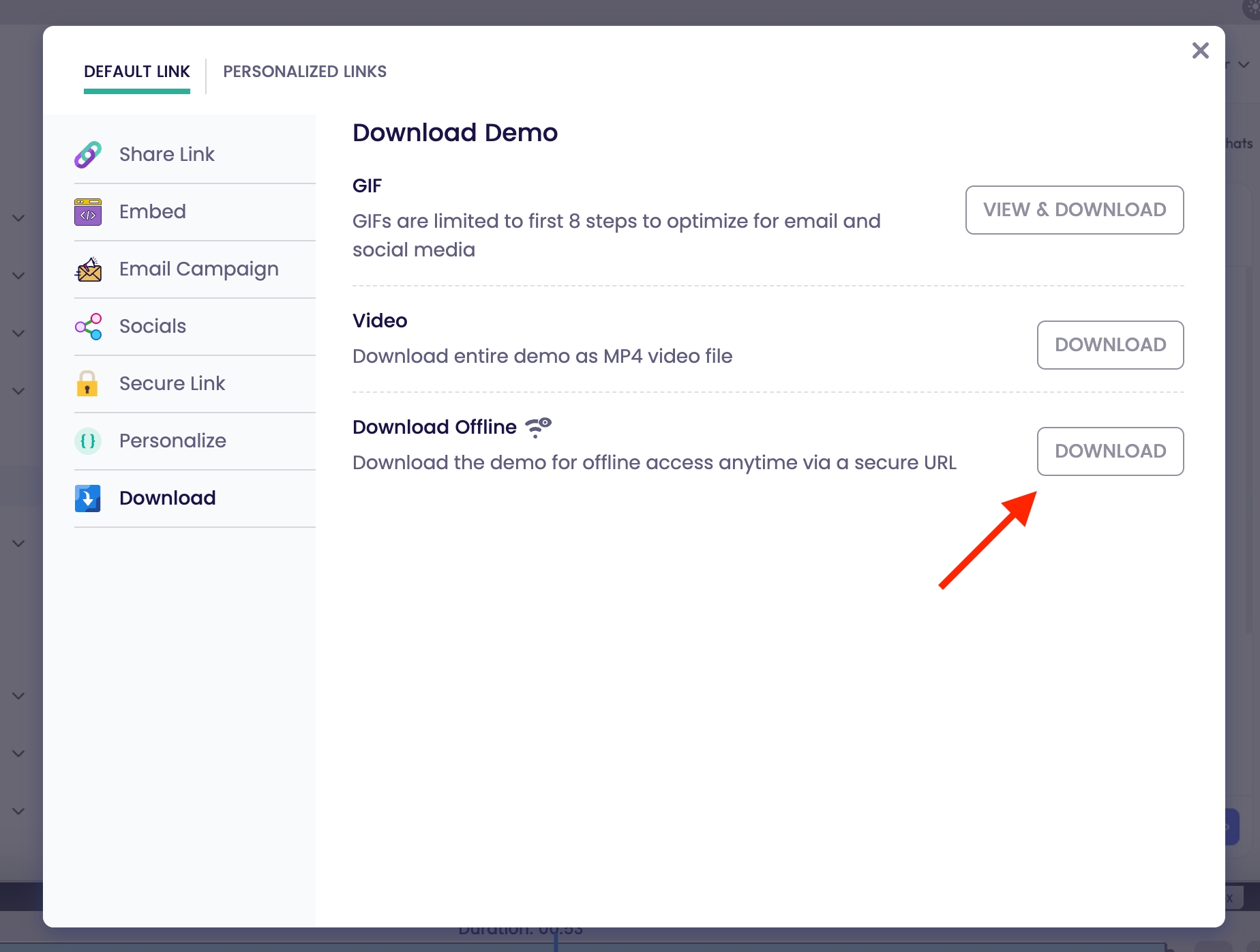
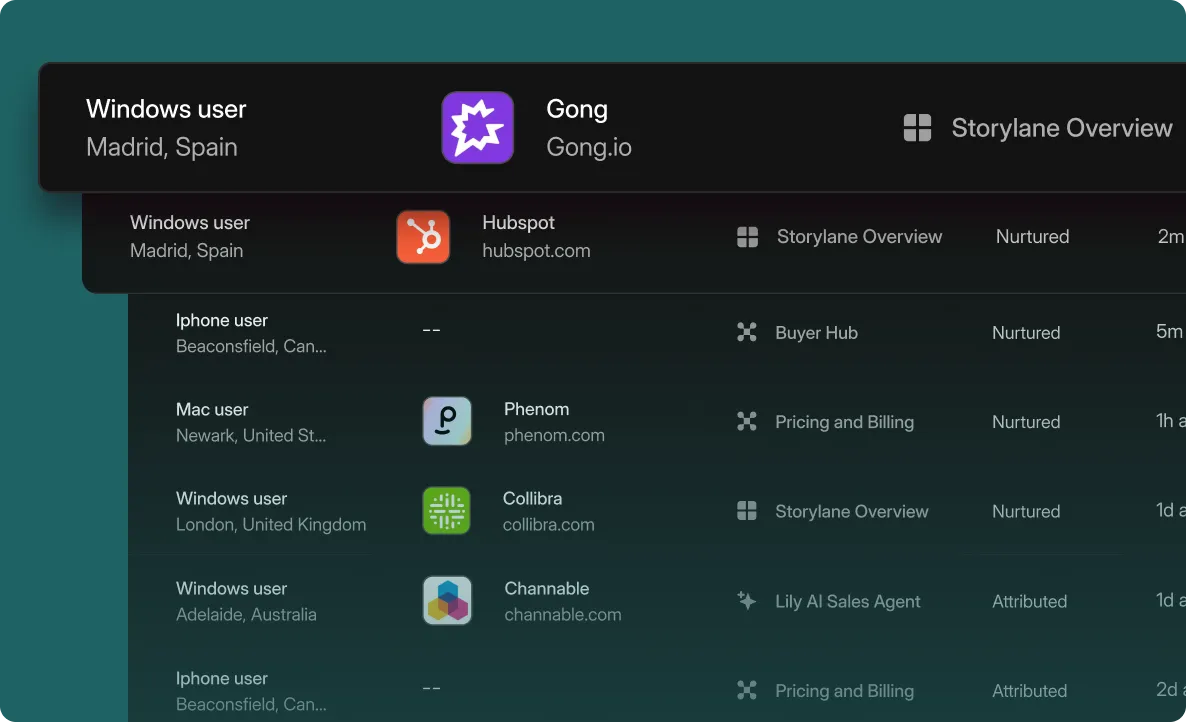
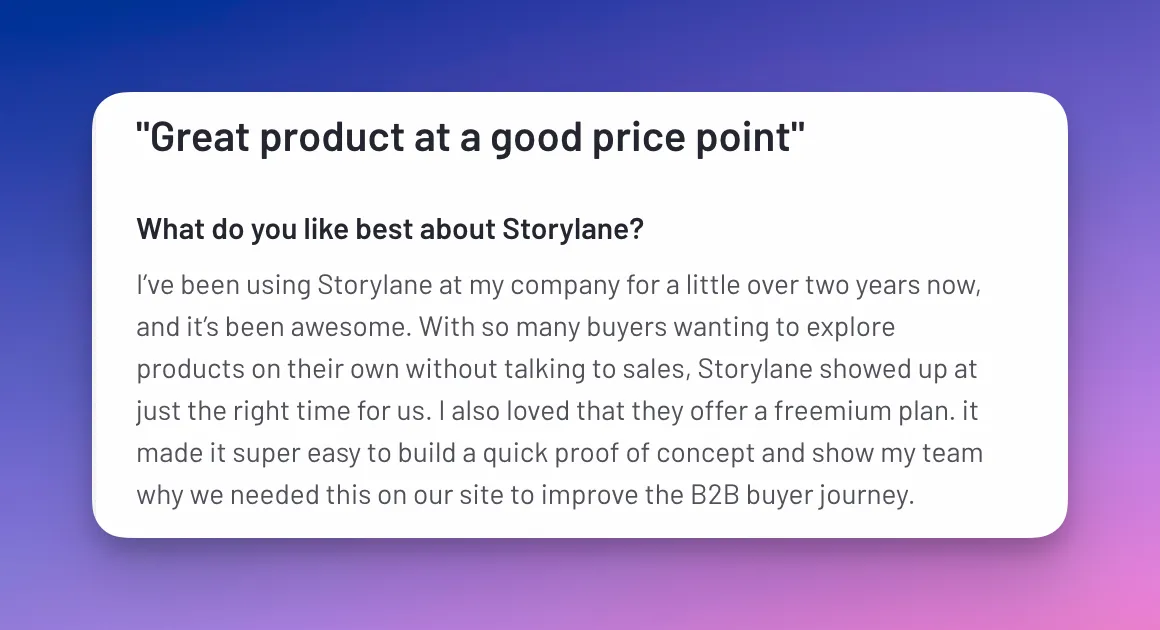
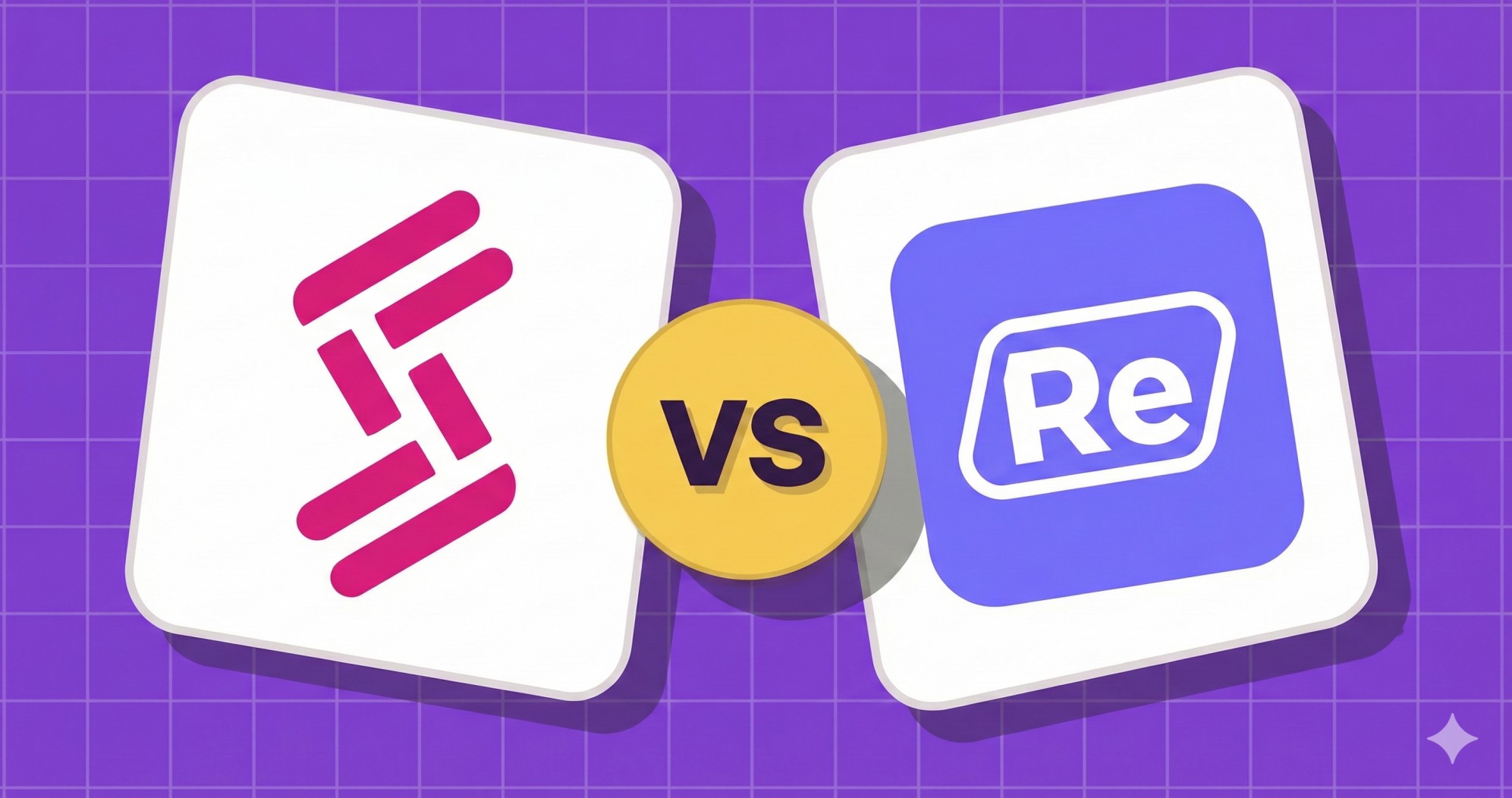
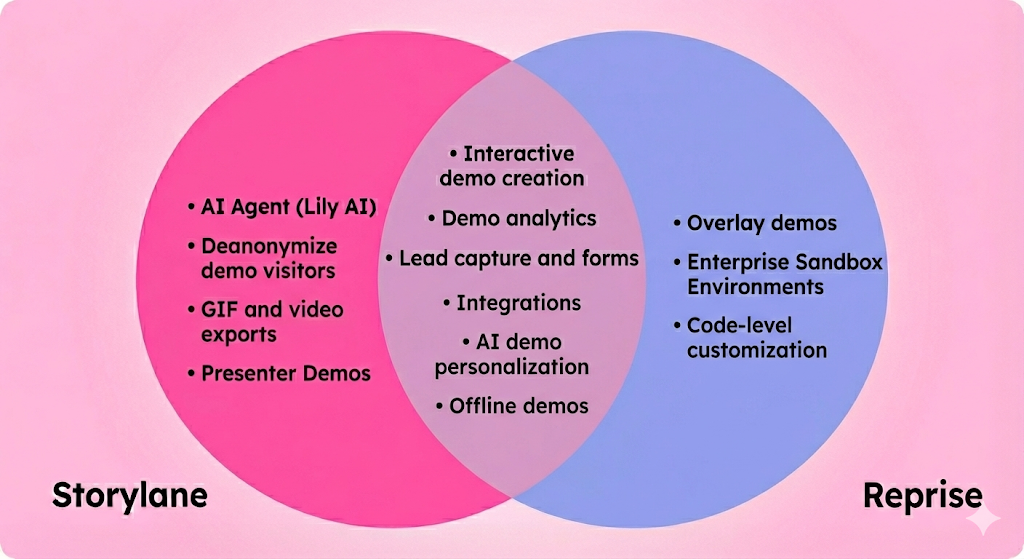
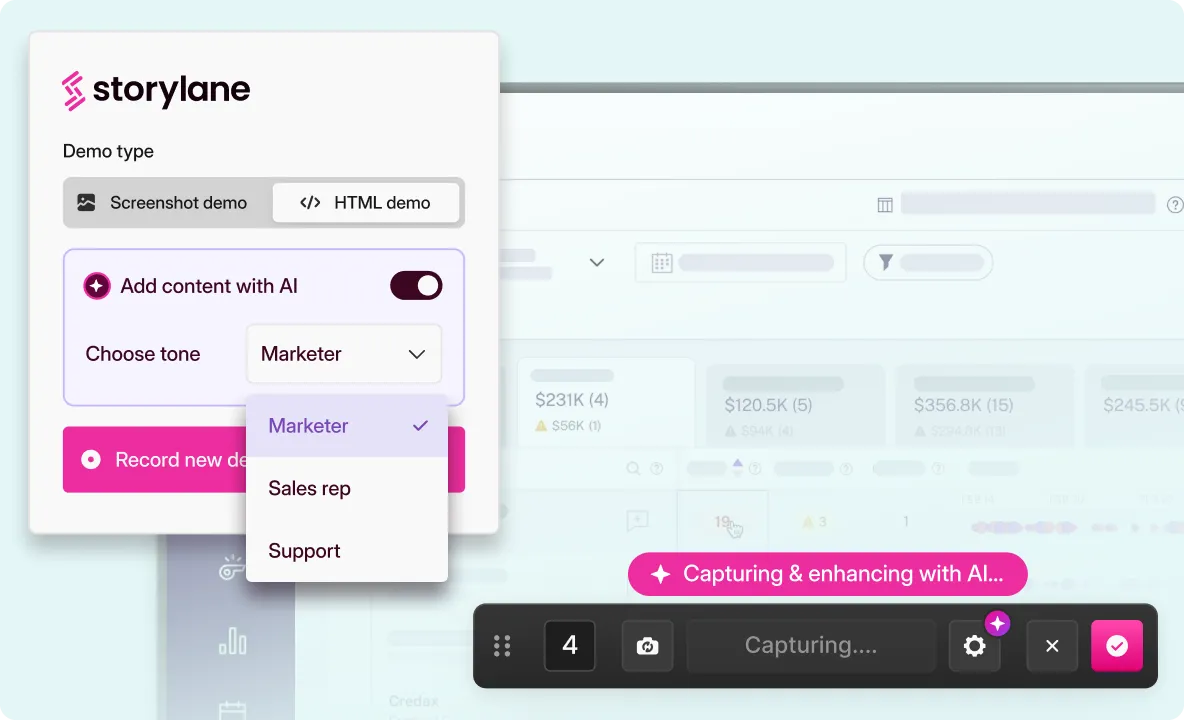
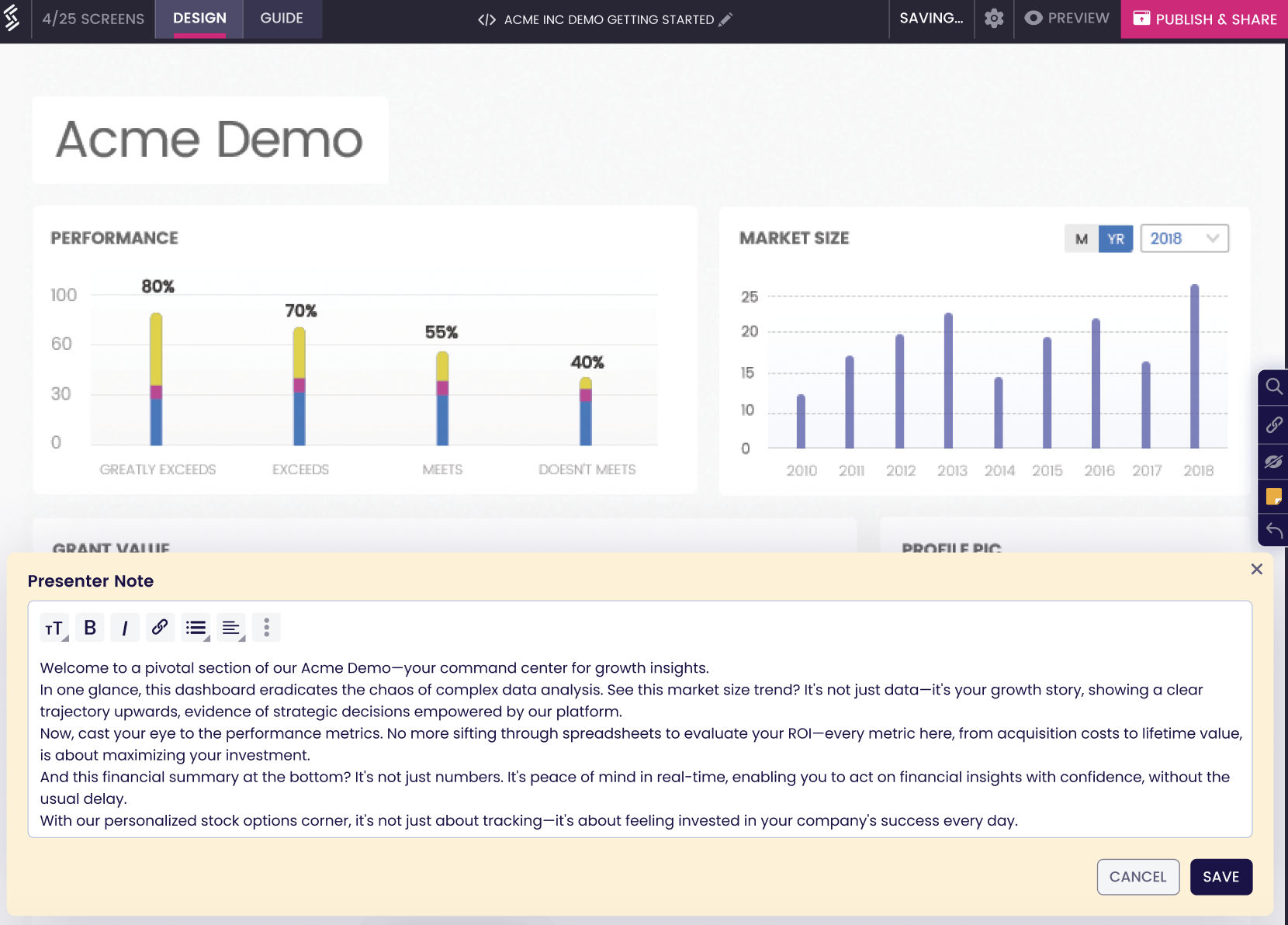
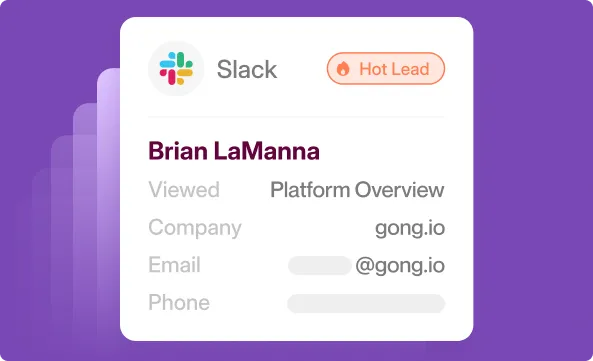
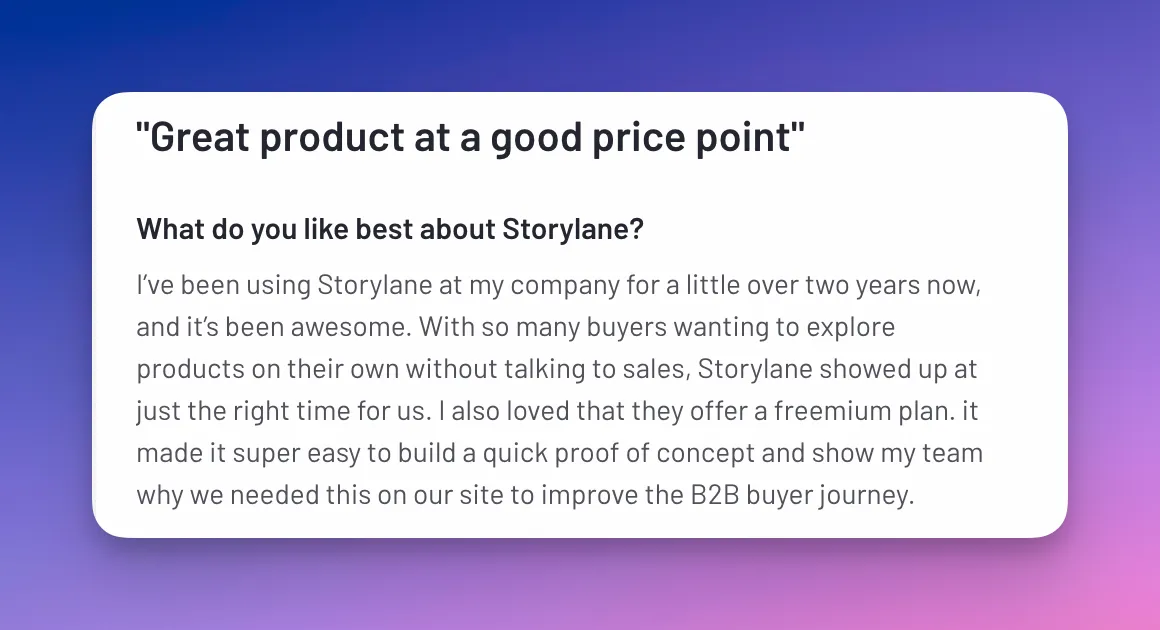
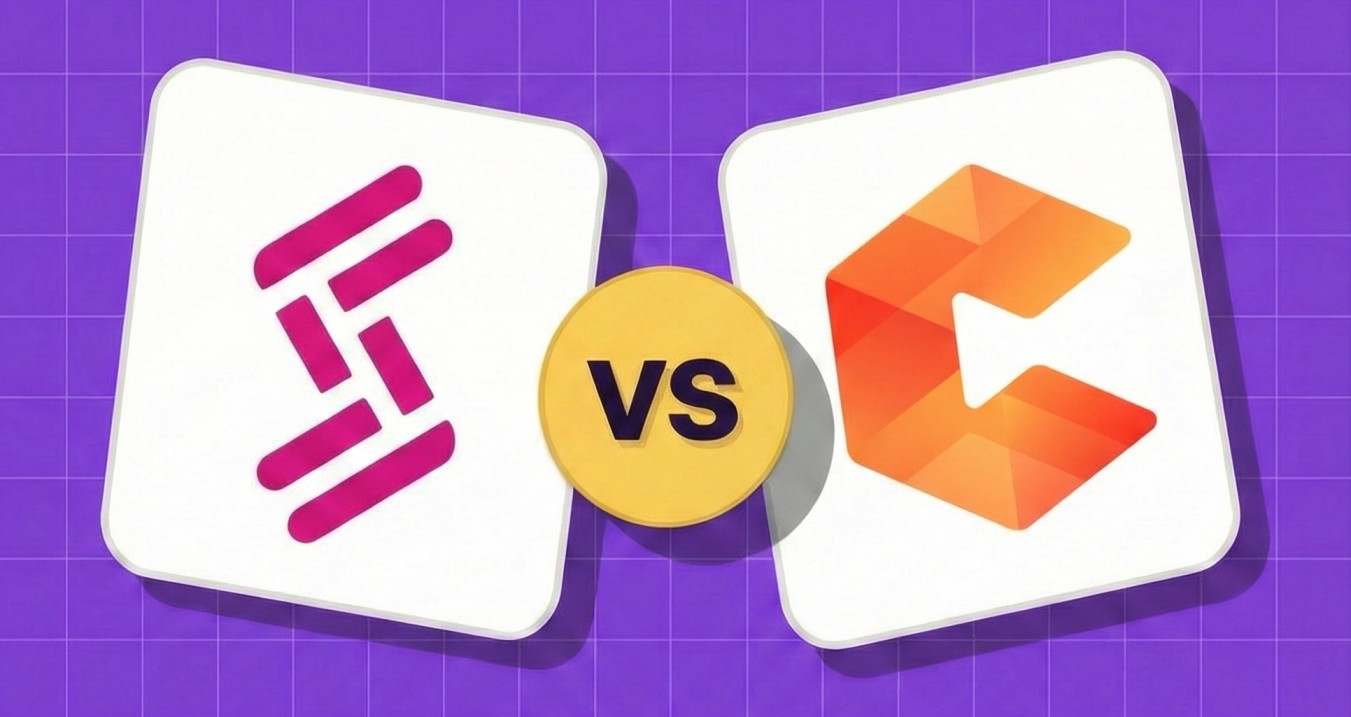
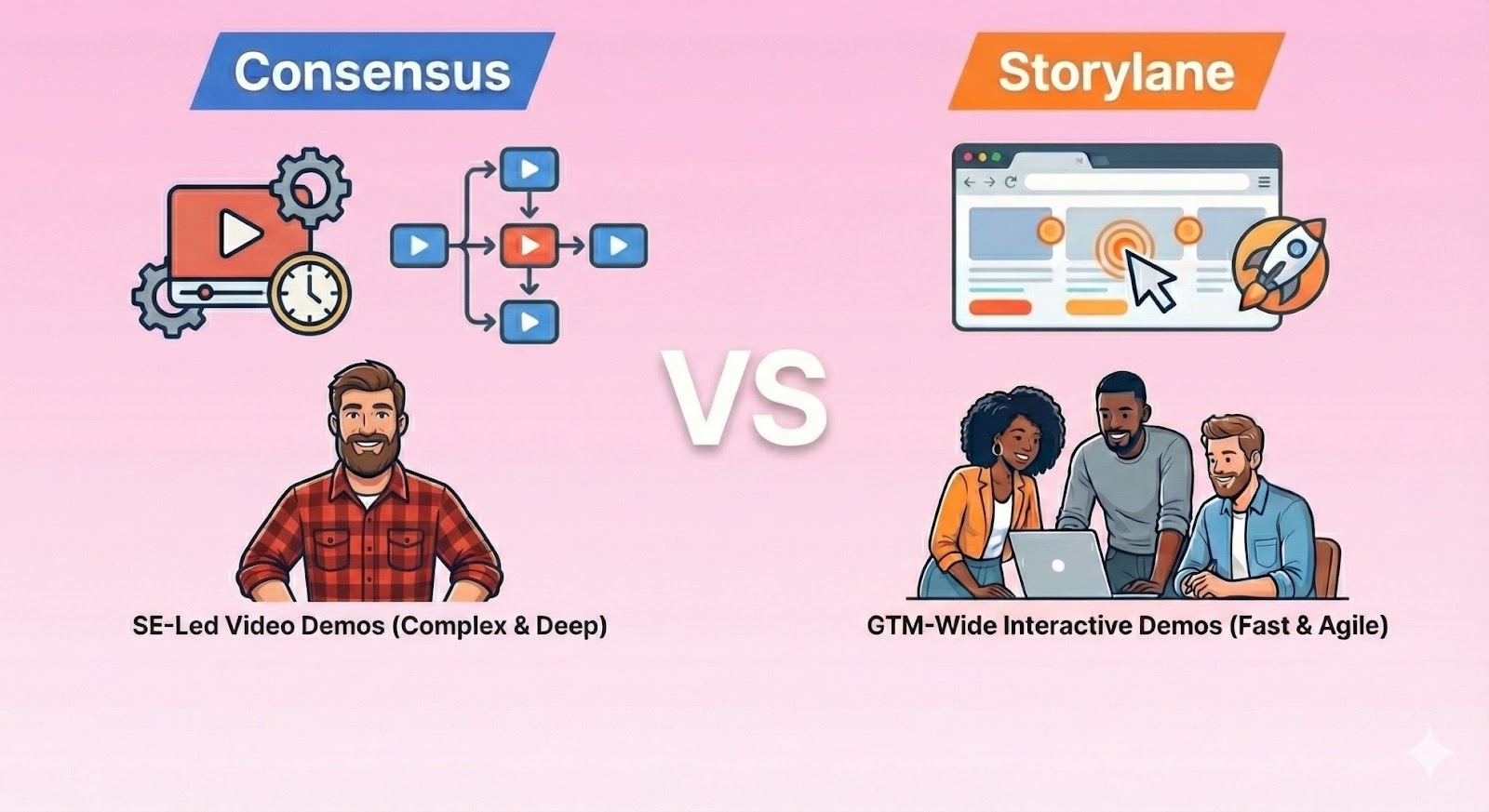
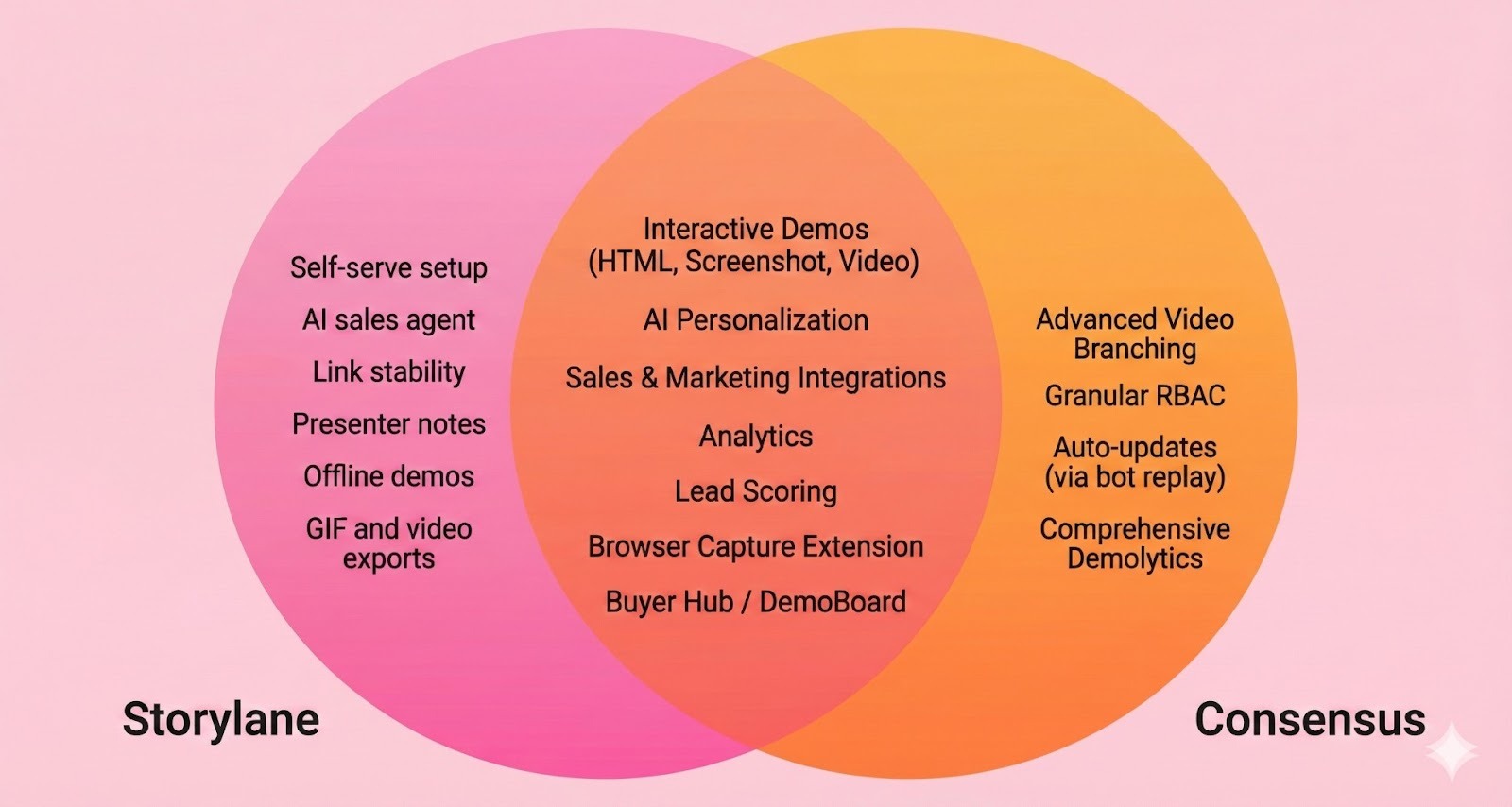

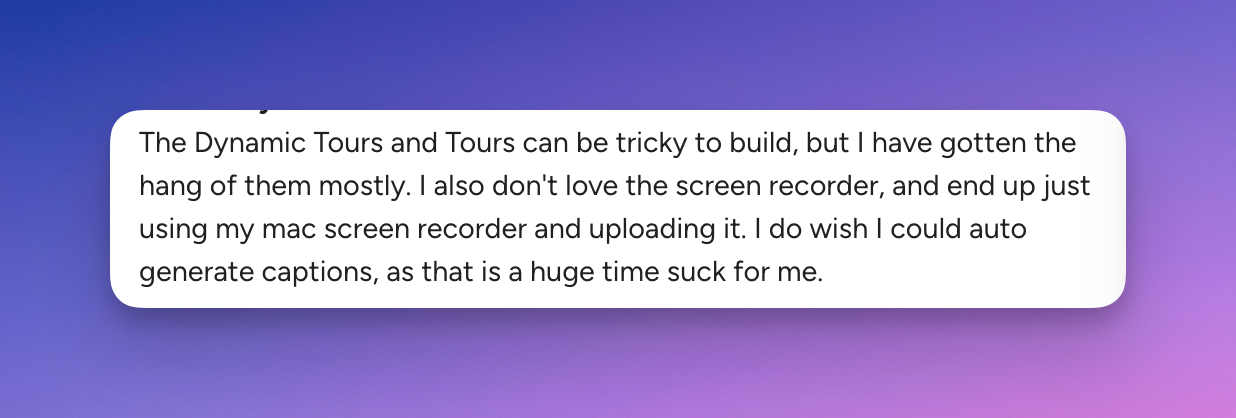
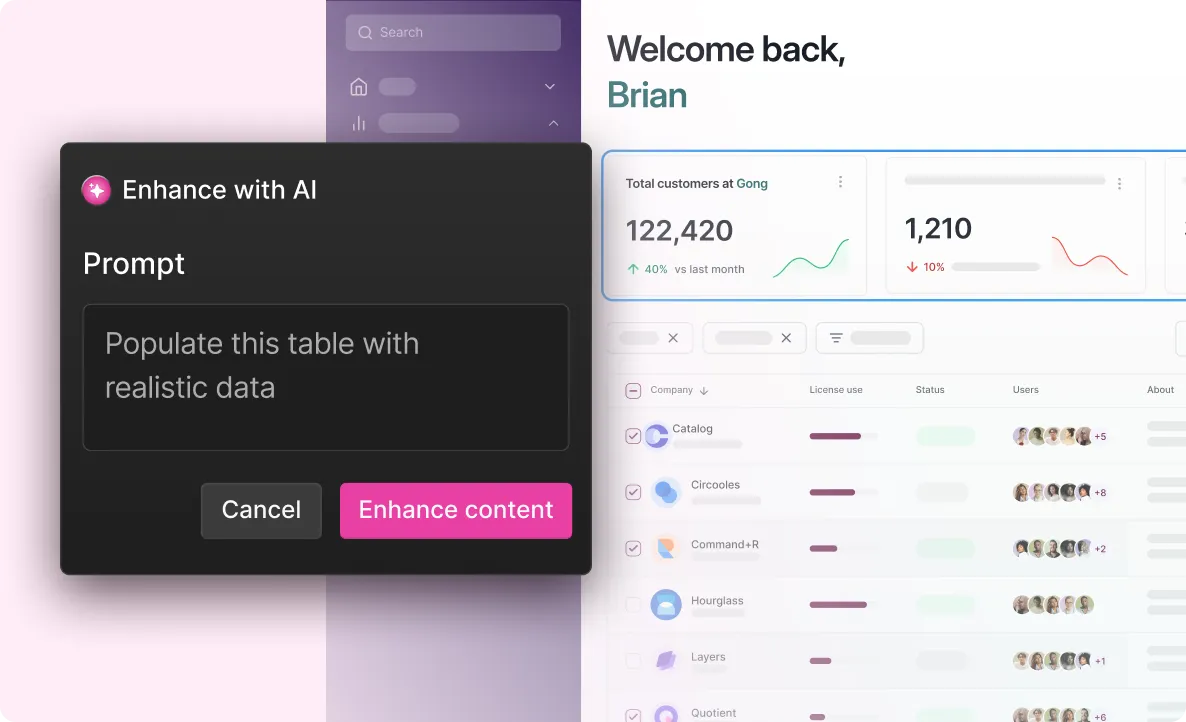

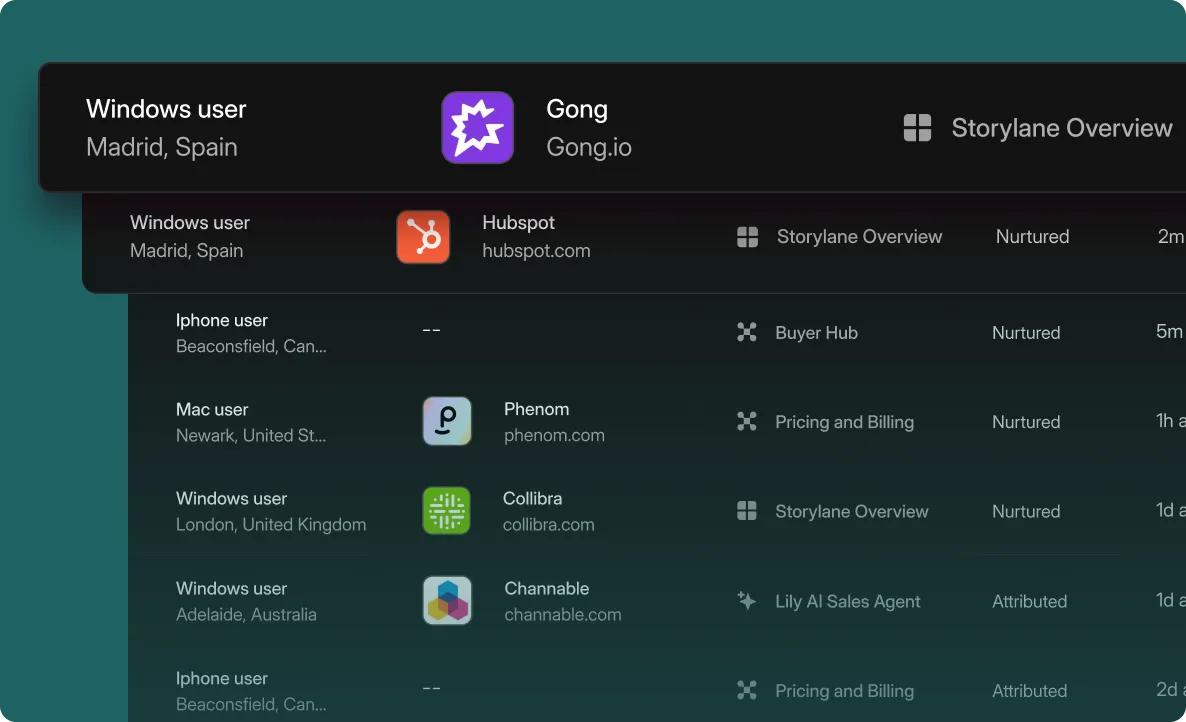
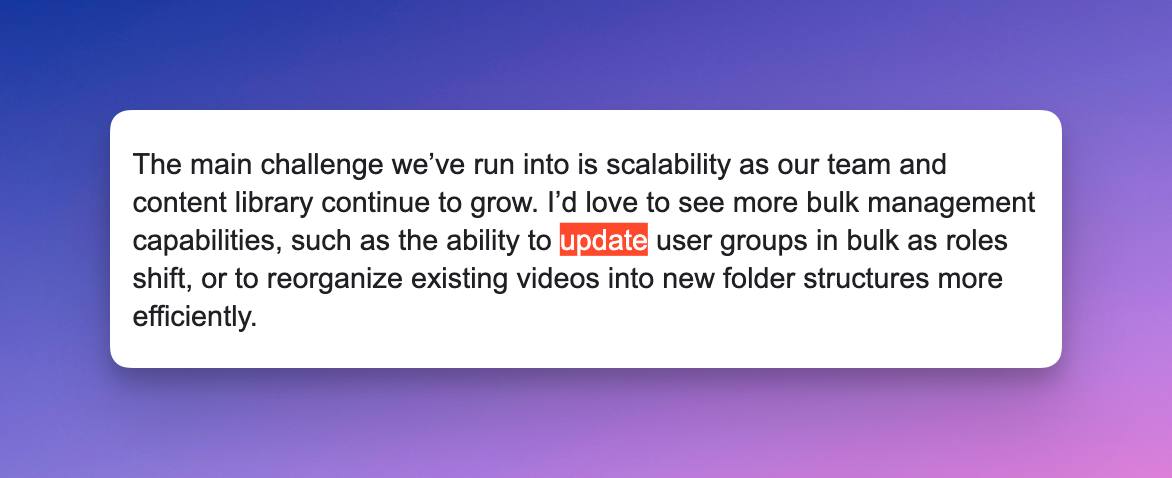

.svg)

.webp)